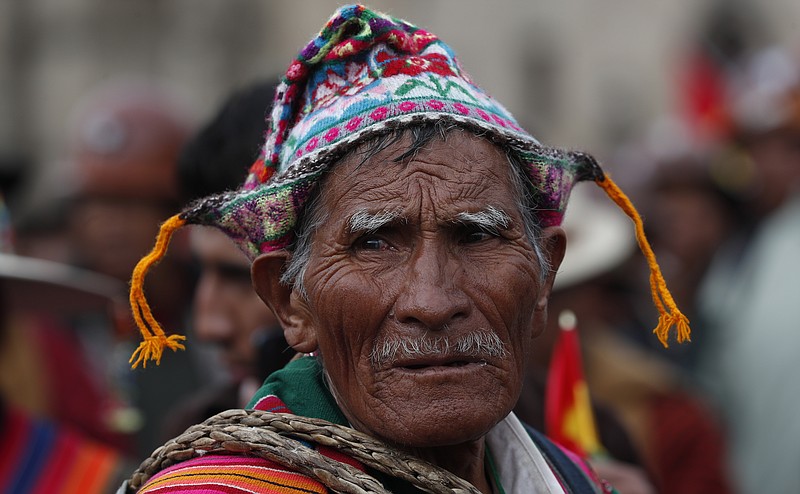LA PAZ, Bolivia (AP) — Backers of Bolivia’s president blocked the arrival of an opposition leader to the capital of La Paz on Tuesday, and the government flew him back to his home city amid protests over the apparent reelection of President Evo Morales.
Supporters of Morales blocked Luis Fernando Camacho from leaving the La Paz airport, and Interior Minister Carlos Romero said Camacho was flown back to Santa Cruz “to protect his safety.”
The Organization of American States secretary-general, Luis Almagro, issued a statement on Twitter urging the government to safeguard Camacho’s right to movement.
Camacho had traveled to La Paz, saying he hoped to get Morales to sign a letter of resignation — something the president has rejected.
Speaking to a large crowd in La Paz hours after the incident at the airport, Morales sent greetings to his supporters, asking they unite to defeat his critics.
“I’m calling on you not to attack our brothers,” he said.
Camacho has been leading protests in Santa Cruz, the country’s most populous city, demanding Morales step aside following a disputed Oct. 20 election. Opponents challenge an official count that showed Morales winning with 47 percent of the vote and a margin of just more than 10 percentage points over his nearest competitor — enough to avoid the need for a runoff against a united opposition.
Other opposition figures are merely demanding a runoff. However, both complain Morales ignored a constitutional ban on another term — he has already served 14 years — and was allowed on the ballot due to a ruling by what they consider to be a biased supreme court.
Both opposition factions also have rejected the terms of an ongoing OAS audit of the results agreed upon with the government.
The eastern city of Santa Cruz has been a hotbed of resistance to Morales, and much of the city has been largely shut down by a general strike for two weeks, with enormous crowds appearing at evening protest rallies. In the northeast state of Beni, clashes between opposing sides Monday night left 10 people injured.
The Armed Forces issued a statement Monday saying it is keeping watch to maintain democracy and “the unity of the people.” Opposition legislator Wilson Santa María has accused the government of trying to “buy the loyalty” of the military and the police in exchange for what he called “bonuses.”
Morales, Bolivia’s first indigenous president, has accused the opposition of trying to stage a coup d’etat.

